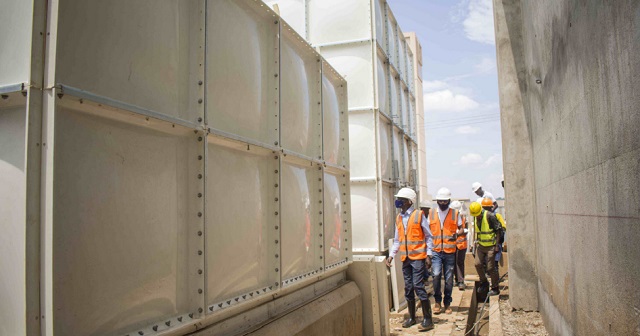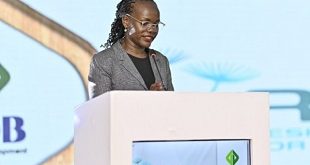
Facility will rent space for servers and computing hardware to businesses
Kampala, Uganda | RONALD MUSOKE | Raxio Data Centre has become the first tier-3 certified data centre in Uganda upon completing a thorough assessment and evaluation by British and American experts last month.
This makes the Namanve-based facility the second privately owned, carrier-neutral tier-3 data centre in East Africa. The other one is the Djibouti Data Centre.
Raxio Data Centre hosts the Uganda Internet Exchange Point which allows networks to directly interconnect and freely exchange data traffic at a common point—making the internet cheaper, faster and more reliable.
James Byaruhanga, the General Manager of Raxio Data Centre describes the achievement as a turning point for Uganda and the East African region.
“The tier-3 certification by the Uptime Institute demonstrates our ambition to achieve the highest standards, and validation that we meet global standards of modern data centres,” said Byaruhanga.
Byaruhanga says the certification is of paramount importance to customers with the most demanding needs providing business critical services to customers, such as those in the financial services sector, as well as creating the conditions for international customers looking to bring next-generation services into Uganda.
“This means that the facility is maintainable which essentially implies that this facility is concurrently maintainable; you have to have two of each equipment,” he said, “If you, for instance have a generator, you have another one on standby; if you have a power line, there is another one, if you have an air-conditioning system, there is a second one.”
“Everything has got to have a back-up such that if one is down, the second one can come up. Raxio is going to comply with the tier-3 certification.”
Byaruhanga says that the Raxio Data Centre will deliver the highest level of service availability for customers who require colocation data centre services for disaster recovery and cross connect in the fast-growing ICT sector. A colocation data centre is a facility that can rent space for servers and other computing hardware to businesses.
Upon completion (when construction is completed), Raxio Data Centre will be a centre-piece of infrastructure supporting the growth and digitalization of the Ugandan economy as it will be the first of its kind in Uganda, operating as a carrier-neutral facility, and meeting the international tier-3 standard.
The facility will also house around 400 racks that are able to provide 1.5MW of IT power to ensure the equipment housed within it operates optimally, 24/7, in a fully safe, secure and redundant environment.
The firm in May this year unveiled nine new local fibre carriers who signed on the Namanve-based carrier-neutral facility to enable seamless data connections to customers at competitive prices.
These include; Africell Uganda Limited, Airtel Uganda, Bandwidth and Cloud Services Group (BCS Group), Csquared, Liquid Telecom, MTN Uganda, National Information Technology Authority-Uganda (NITA-U), Roke Telkom and Uganda Telecom Limited (UTL).
“Everyone with fibre in this country is coming to Raxio Data Centre and they have already started pulling their cables,” Byaruhanga said.
He added that Raxio Data Centre intends to go into partnership with four re-seller partners who are going to provide services to SMEs. This, he said, is because some of the SMEs may not be able to buy directly from Raxio but they have needs that must be met and the resellers will be able to provide that to them.
Raxio’s development comes in the wake of a new report on the internet economy in Africa published by Google and the International Finance Corporation (IFC) on Nov.10. The report noted that the African internet economy is one of the largest overlooked opportunities of the past decade with potential for profound impact on development.
The e-Conomy Africa 2020 report released by Google and IFC estimates that increased access to faster and better quality internet, and Africa’s commitment to creating the world’s largest single market under the African Continental Free Trade Area, could add up US$180 billion to the continent’s economy.
The report notes that depending on the usage intensity of digital technologies by business, the internet economy is improving productivity and efficiencies across large swaths of the economy, including; agriculture, education, financial services, healthcare and supply chains.
Although Africa has the world’s youngest fastest-growing and increasingly urbanized workforce, rural populations are also benefitting from digital start-ups and the internet economy is critical to reaching and supporting the continent’s 1.3bn people.
Start-ups are solving some of Africa’s most challenging issues, such as access to healthcare for remote populations, employment opportunities for women, and the ability to securely send and receive money.
Currently, Africa is home to 700,000 developers and venture capital funding for startups has increased year-on-year for the past five years, with a record $2.02 billion in equity funding raised in 2019, according to Partech Ventures Africa.
****
 The Independent Uganda: You get the Truth we Pay the Price
The Independent Uganda: You get the Truth we Pay the Price



